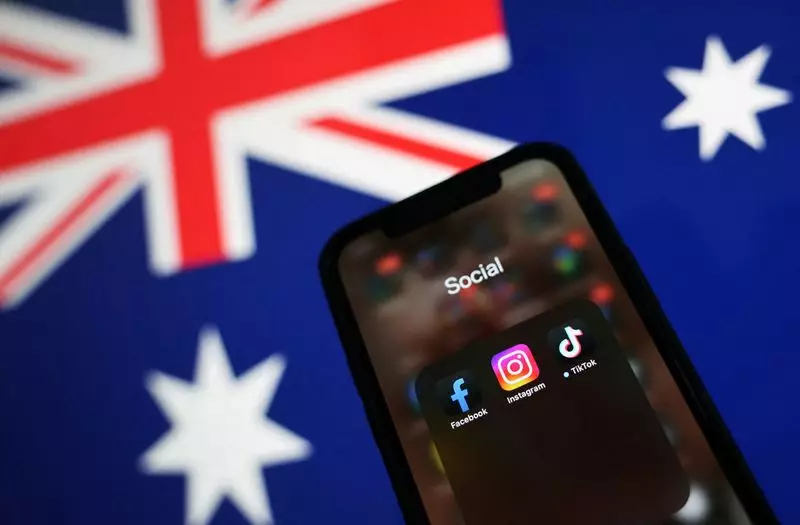In a bold move that has reverberated globally, the Australian government recently enacted a social media ban for children under the age of 16, sparking a heated debate characterized by a mix of indignation, relief, and concern. Coined as the most stringent regulation of its kind, this law aims to mitigate the risks associated with social media use among minors. The legislation prohibits major tech platforms, including Instagram, Facebook’s parent company Meta Platforms, and TikTok, from allowing users under the stipulated age to access their services. Noncompliance could result in hefty fines amounting to approximately AUD 49.5 million (USD 32 million).
As the ban’s enforcement period will begin with a trial in January, aiming for full implementation within a year, the long-term implications of this legislation are far from settled. The Australian Prime Minister, Anthony Albanese, has framed this ban as a necessary step towards ensuring children’s safety in the unsupervised realms of digital interaction. However, opponents argue that the policy might inadvertently drive young people to more illicit corners of the Internet, a concern echoed by critics from both social media companies and various advocacy groups.
Reactions from the Australian public have been markedly varied. On one hand, some citizens have expressed approval of the legislation, lauding it as a protective measure for youngsters. Remarks from individuals like Sydney resident Francesca Sambas underscore this sentiment; she believes that children are often exposed to inappropriate content online, thereby making the ban a responsible decision by the government.
Conversely, a vocal segment of the population has raised concerns regarding governmental overreach and the suppression of democratic principles. Shon Klose, a 58-year-old resident, articulated feelings of anger and frustration, believing that such regulations erode democratic freedoms. This friction within public opinion highlights the inherent challenges of implementing such sweeping policies, as they often clash with individual rights.
Adding another layer to this debate are the perspectives coming from minors themselves. Tween users have voiced their skepticism regarding the effectiveness of the ban, with 11-year-old Emma Wakefield indicating her intent to sidestep the rule altogether. This response underscores a vital aspect of the discussion: the extent to which legislation can actually control behavior in a digital landscape rife with workarounds and alternative platforms.
Australia’s decision to introduce this ban not only places it on the leading edge of regulatory efforts aimed at tech firms but may also set a precedent that could influence similar actions in other jurisdictions. While some countries have enacted laws requiring parental oversight for minors using social media, Australia’s absolute prohibition stands apart. For instance, Florida’s full under-14s ban is currently embroiled in legal challenges on free speech grounds.
Critics of the hasty passage of Australia’s legislation have underscored the lack of comprehensive scrutiny during the legislative process. Social media companies, including TikTok, have expressed their disappointment, arguing that the rapid implementation could jeopardize the safety of children instead of enhancing it. The platform’s spokesperson highlighted concerns that this ban could inadvertently contribute to increased exposure to harmful online environments lacking regulations and community guidelines.
Prime Minister Albanese has defended the legislation as a vital move for public safety, likening it to laws governing alcohol consumption among minors. He acknowledged that while no law provides absolute guarantees of compliance, the fundamental intent behind the legislation holds paramount importance. Still, the inherent challenges of monitoring online behavior raise critical questions about the balance between safeguarding youth and preserving individual freedoms.
Furthermore, it is crucial to consider the international ramifications of Australia’s stance. As relations between Australia and major US tech companies become increasingly strained—punctuated by prior actions that required these companies to compensate media outlets for shared content—the implications of this new law further complicate the dialogue between nations and global tech giants. Industry experts warn that clashes such as these could create a cascading effect internationally, as other nations weigh their regulatory options against potential backlash from influential tech stakeholders.
Australia’s social media ban on minors invites a complex discussion that intertwines child safety, parental responsibility, technological control, and individual freedoms. As the government embarks on this uncharted path, scrutiny and ongoing debate will likely persist regarding the efficacy of such legislation and the potential consequences for society as a whole. As Australia continues to navigate these waters, it is essential to engage in collective discourse that prioritizes both the safety of youth and the preservation of democratic values in an increasingly digital world.

